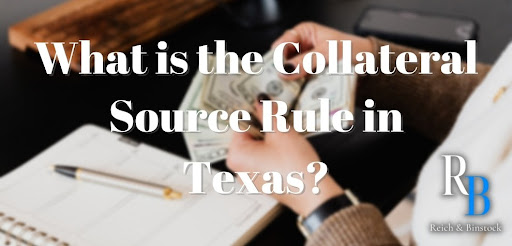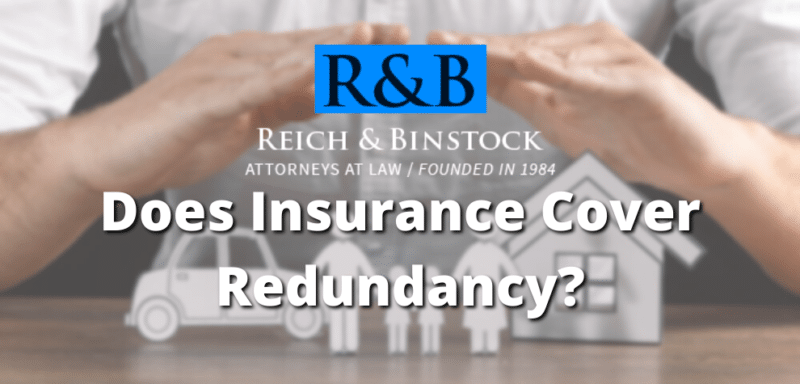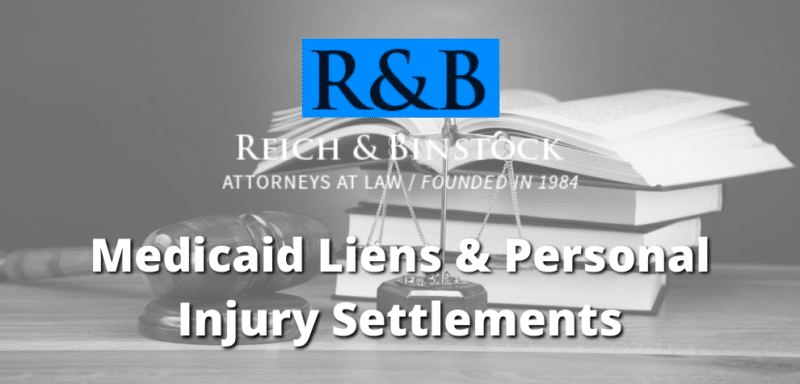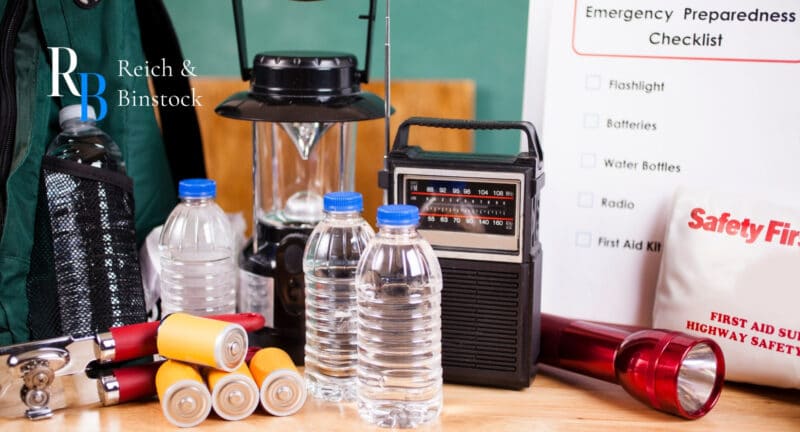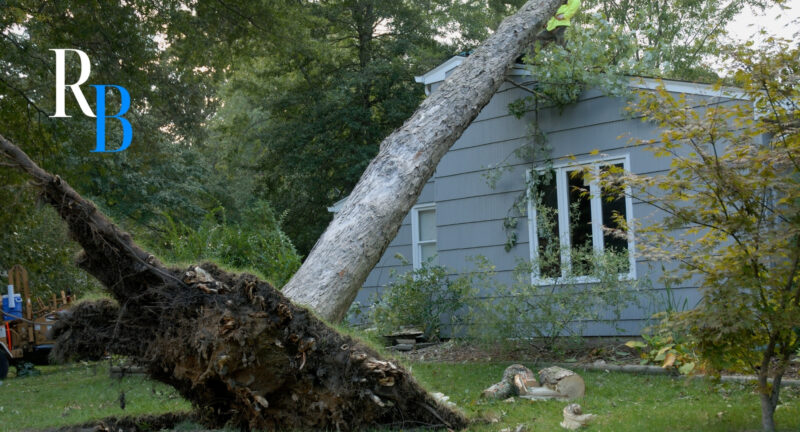HURRICANE DAMAGE CLAIMS IN TEXAS
Hurricane Lawyer in Houston, TX
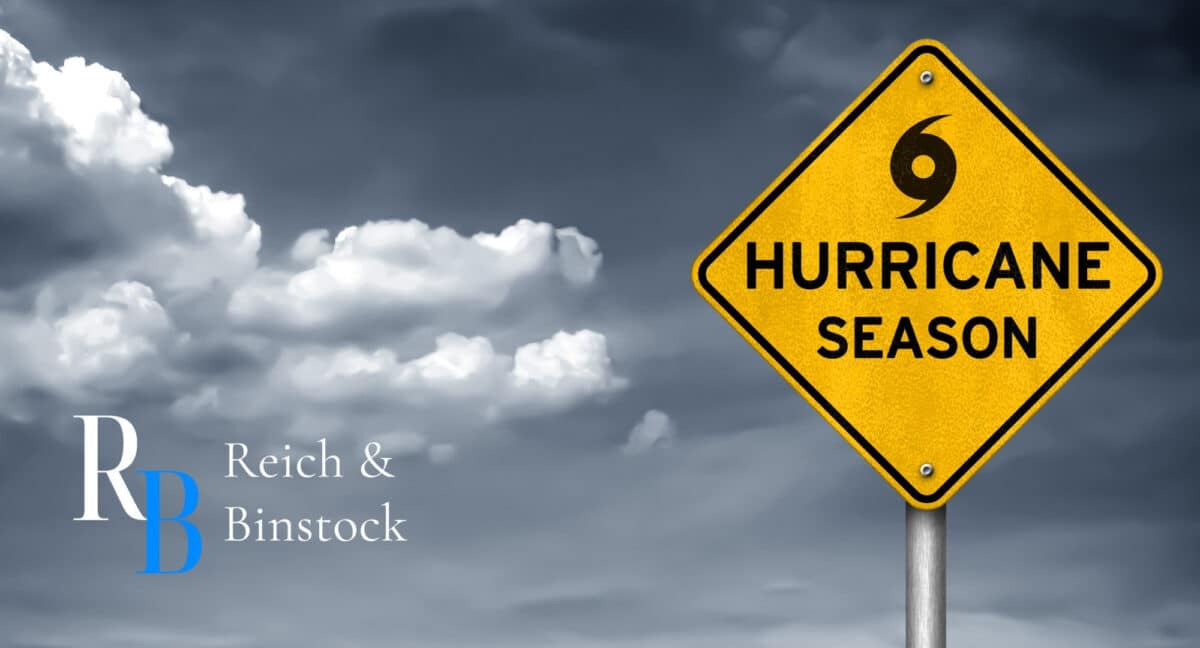
Property owners with property insurance may opt to make a claim with their insurance company after suffering hurricane damage. Individuals and company owners who want to appeal an insurer’s claim judgment may be able to do so with the aid of a knowledgeable hurricane lawyer. Hurricanes are among the most costly and destructive natural catastrophes, occurring on an annual basis in numerous states across the United States. When a powerful storm strikes, property owners need to know that their insurer will be able to receive and process their insurance claims swiftly.
Property insurance firms should ideally act in good faith, with their clients’ best interests at heart. Unfortunately, as many insured parties know, receiving a fair reimbursement from an insurance provider may be difficult—especially when the damages incurred as a result of a storm are substantial. A hurricane lawyer Reich & Binstock can assist you if you are a property owner with hurricane insurance coverage who is having trouble getting a reasonable cash settlement from your insurance provider.
An experienced attorney can analyze your circumstances to determine whether you are eligible for legal action and assist you in resolving your disagreement with your insurance in order to get damage coverage. To speak with an experienced hurricane damage claims law firm, reach out to Reich & Binstock at 713-622-7271. We offer an initial free case review to all our clients, and we don’t accept a cent unless we secure a recovery for you.
The Five Hurricane Categories
It’s important to understand the types of hurricane damage that can occur depending on the category of the storm. The value of your hurricane damage claim will likely depend on the category of the storm. The higher the category when the hurricane hits land, the worse the damage will be. Below, we include outlines of what to expect from each category, according to the SAFFIR-SIMPSON Hurricane Scale.
Category One: Hurricane Nicholas & Hurricane Hanna
Winds from 74 to 95 mph
These will likely bring damage to shrubs, foliage on trees, mobile homes that are not anchored, and badly constructed objects.
Category Two: Hurricane Alex
Winds from 96 to 110 mph
These will bring more significant damage to trees and shrubbery. Some trees will fall down. There will be more significant damage to poorly constructed objects, as well as some roofing damage.
Category Three: Hurricane Edouard
Winds from 111 to 130 mph
Larger trees can be blown down. Badly constructed objects could be completely destroyed. There will likely be damaged roofing, broken windows, and damaged doors. Mobile homes can be destroyed, and small buildings can sustain structural damage.
Category Four: Hurricanes Ida, Delta, Laura, Harvey, and Ike
Winds from 131 to 155 mph
Any shrubs, trees, and signage will likely be blown down. Roofing, windows, and doors will sustain significant property damage. Many small buildings will have complete roof failure. Torrential rains will occur. Hurricane Laura was particularly devastating for the Gulf Coast. Our experienced attorneys handle Hurricane Ida claims, as well as other major storm claims.
Category Five: Hurricanes Katrina, Rita, and Michael
Winds from 155 mph upward
All of the above damage will occur, plus complete roof failure on many buildings. Many windows and doors will have shattered glass. Small building failures will be common. Even larger buildings may experience complete failure. Cases like these will require an experienced commercial property damage lawyer. The storm surge will be fast and high, with evacuation necessary for those within 10 miles of the shore a possibility. Hurricane Katrina was perhaps the most memorable and destructive in recent history.
How to Prepare for a Hurricane
To both protect yourself and your home from hurricane damage, it is important to understand how best to prepare for these powerful storms. These storms can damage entire rooms, destroy homes, and devastate entire communities. Preparing not only protects you from the storm, but also from the insurance companies.
When mass hurricane damage occurs, they will likely want to downplay the damage that innocent people suffer. To ensure that your insurance claim isn’t denied, we recommend taking the following precautions.
- Plan Ahead. This means having emergency phone numbers on hand, preparing an emergency kit, locating shelters and evacuation routes, and planning for your pets.
- Gather Your Emergency Supplies. Because hurricanes can displace families and cut off power and water supplies, it’s important to pack the essentials. Be sure to pack food, water, medicine, batteries, flashlights, important personal items, important documents, and even a fire extinguisher.
- Understand the Difference Between a Watch and a Warning. While watching the news, you may hear the terms “hurricane watch” and “hurricane warning.” A hurricane watch means that the conditions are right for a hurricane to possibly form. A hurricane warning means that a hurricane is expected to form.
- Prepare Your Vehicle. Fill your gas tank, keep your car under cover, and place an emergency kit in the car.
What Are the Most Common Types of Damage Caused by Hurricanes?
The four most common hurricane damage insurance claim types are as follows.
- Roof damage and vinyl siding damage
- Interior damage, such as wind-driven rain, flying debris, and mold growth
- Damaged equipment due to flooding and power surges
- Public utilities can also be affected and disrupted for hurricane victims
What Is Hurricane Insurance?
Usually, what we think of as hurricane insurance is more than likely a higher deductible on homeowners’ policies. It is not so much its own insurance policy as it is a piece of a homeowners’ policy. Basically, the deductible specifies how much a policyholder must pay before the insurance company responsible for their claim will pay for the damage. It is a common deductible in 19 states that are prone to hurricanes.
Another possible meaning behind hurricane insurance is catastrophe insurance which covers flood damage and wind damage. In certain states, such as Florida and Texas, catastrophe insurance may be a requirement.
What To Know About Hurricane Insurance?
As hurricane season approaches and you face the possibility of storm-related damage, there are a few things to keep in mind whether you have home insurance or other property insurance.
- Flooding: Property insurance generally does not cover flood damage, which many property owners are unaware of. Flood insurance will almost always have to be bought separately. If you live near a big body of water or on terrain that is vulnerable to storm surges, this is a desirable and maybe required investment.
- Differences in hurricane insurance policies: Another thing to keep in mind when it comes to hurricane insurance is that not all policies are created equal. Individual plans might vary based on the insurer from which you purchase your insurance, as well as the quantity and categories of coverage specified in your policy.
- Deductibles for hurricane damage: Some insurers have included provisions in their property insurance policies in some jurisdictions that mandate higher deductibles for damage caused by hurricanes and other natural disasters.
If you own a home in a high-risk region, your insurer may require you to obtain a separate policy for hurricane damage or pay a larger deductible for hurricane damage than you would normally pay for other types of loss.
What Type of Insurance Covers Wind Damage Hurricane Claims in Texas?
Windstorm insurance is a form of property insurance that protects your house and personal belongings against damage caused by windstorms. You may require this coverage if your homeowner’s policy does not cover wind damage.
A regular homeowners insurance policy will generally cover wind and hail damage to your house and personal possessions. However, if your house is regarded as too high risk in a high-risk coastal community, insurance firms are known to exclude windstorm damage from coverage. Some insurance firms in coastal regions provide separate windstorm insurance plans that only cover wind and hail-related damage and nothing else as a remedy to this potentially large coverage gap.
If you live near the shore and haven’t been able to get wind and hail coverage on the private market, your state’s Beach and Windstorm Plan may be able to help. In the same way as FAIR (Fair Access to Insurance Requirements) Plans pool coverage from private firms, these plans are overseen by the government. TWIA (Texas Windstorm Insurance Association) and C-MAP (Coastal Market Assistance Plan) of New York are two of the most well-known Beach Plans. In Texas, the TWIA accounts for roughly half of the wind insurance market, with private firms accounting for the other half.
How to Report a Damaged Property Claim by Hurricane?
Notifying your insurance carrier is the first step in filing a property damage claim. If you already know exactly what is and isn’t covered by your homeowner’s insurance policy, you may call the provider right then. Take some time to examine the specifics of your insurance if you are unfamiliar with it. You’ll have a greater chance of getting a fair settlement if you read over your policy multiple times. Property damage claims often have a shorter filing window than other types of claims, such as vehicle accidents. It’s critical to understand how much time you have to file. If you wait until beyond the deadline, your claim will almost certainly be denied. Enlist the help of a hurricane lawyer to ensure that the next steps go smoothly.
How Long After a Hurricane Can You File a Claim in Texas?
This depends on the type of claim you bring, such as a flood insurance claim, homeowners’ insurance claims, or wind damage claims. In Texas, the statute of limitations for filing hurricane damage claims is 4 years from the date the damage occurred.
Steps to Take While Filing Your Claim
Take note of your damaged property. Make an itemized inventory of any damages to your home, workplace, or property after conducting your own in-depth investigation. This can be done on a piece of paper or on your phone; the format of the damaged property list doesn’t matter. It’s just important that you have one.
Take pictures. This is an important step to follow before submitting a claim for property damage. Any visual proof you can offer to the insurance company, such as photographs or videos of damage caused by the hurricane or tropical storm, can help the insurance company believe your claim is genuine. Take photographs of any valuables that have been damaged as well.
Review the proof of loss, as well as other documents carefully. The insurance adjuster will most likely require you to sign a proof of loss form before providing payment. This paper contains details on the scope and cost of repairs for your home or property. You must carefully study this document to verify that all essential fixes are included.
Carefully choose a repair company. You don’t have to employ the cheapest repair business simply because it’s the cheapest, and you don’t have to use the one that your insurer recommends. Insurance companies will frequently try to persuade you to use their preferred vendor in order to save money. It’s a good idea to acquire quotes from a few different providers and then pick the best one.
How are Claims Handled After a Hurricane?
Certain steps are necessary to ensure that your insurance company handles your claim properly. Below, we list the steps that a hurricane lawyer would recommend after a severe storm.
- Prevent further damage. You want to avoid any more damage in the early aftermath of a hurricane to avoid potential safety risks and lower the cost of repairs and replacement. One option is to use tarp material to cover damaged items. If the storm causes further damage, your insurance may use this as a justification to refuse or decrease your claim.
- Document the damage. After a storm, taking photographs of the damage to your property and keeping notes on the intricacies of the destruction is a must. Insurance companies frequently attempt to minimize the amount of damage claimed in a claim or question the severity of the harm you’ve mentioned. Having photographic proof can help you show the amount of your losses to your insurer, making it more difficult for them to dismiss or undervalue your claim.
- File the claim as soon as possible. After a natural catastrophe, dealing with property damage may be stressful, and you may find yourself swamped with chores. It’s critical, though, that you make a claim with your insurance company as quickly as possible. Delaying the submission of your claim might make your insurer suspicious, causing the process to drag on. Some plans also specify how long you have to make a claim, so it’s better to file as soon as possible to avoid any potential problems down the line.
How Do I Prepare for an Insurance Adjuster After a Hurricane?
Before an insurance agent visits your home, there are certain steps you can take to prepare for their arrival. We list these steps below.
- Look over your homeowners’ insurance and flood insurance policy
- Review and document the damage that you want the adjuster to see
- Prepare an inventory of lost, damaged, or destroyed items
- Take pictures and videos of the damage
- Work with a licensed contractor for permanent or temporary repairs
- Review all the paperwork of your policy, as well as your claim
How Long Will Claims Take After a Hurricane?
The length of time it takes to settle a property damage claim is primarily determined by how the insurance company reacts and the type of damage. Customers must wait an average of 2.3 days for a call back from an insurance representative after contacting a firm. The average wait time will be greater in the event of a natural disaster. After making contact with the insurance company, it takes an average of 3 days for an insurance adjuster to come out and inspect your property.
Some jurisdictions require insurers to confirm receipt of a claim within 15 days after it is submitted, and then they have 30 days to accept or deny the claim. The percentage of complaints about communication delays or not obtaining a response from the insurance company has gradually increased over the last three years, rising from 3.05 percent of all complaints in 2015 to 4.13 percent in 2017. If you suspect that your insurance company is using bad faith insurance practices, contact a hurricane lawyer with Reich & Binstock today.
What Happens if My Insurance Denies My Hurricane Insurance Claim?
Insurance companies deny claims for a variety of different reasons. Below, we list some of the most common reasons.
- You do not have coverage for the damage caused by the hurricane.
- You have reached the limits of your policy’s coverage.
- There is no documentation from your end about the damages.
If the company cannot provide you with a legitimate reason for the denial, it is time to hire a hurricane lawyer. It is possible that they are engaging in bad faith insurance practices and simply avoiding a payout.
Contact a Hurricane Lawyer with Reich & Binstock Today
At Reich & Binstock, we understand that dealing with insurance companies after a disaster is the last thing you want to do. That’s why we dedicate a large portion of our practice to helping our clients with insurance and contract claims in Texas. If you or a loved one suffered significant damage from a hurricane and your insurance company refuses to cooperate, you need a Reich & Binstock hurricane lawyer. Call our Houston office today for your free consultation at 713-622-7271.
There is never a fee unless we recover on your behalf.
Additionally, clients are not obligated to pay expenses if a recovery is not made.















